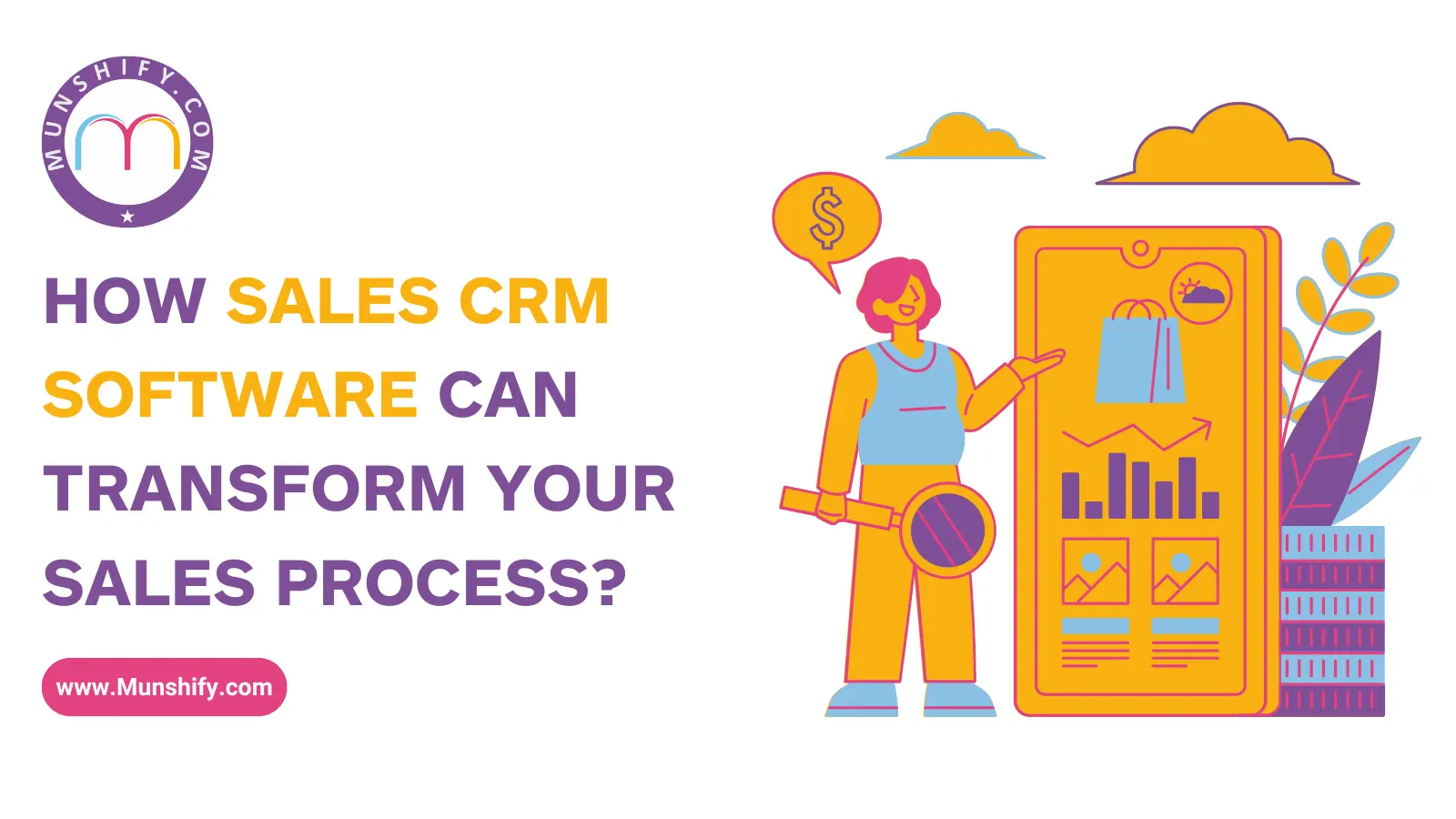In today’s fast-paced business environment, efficiency and organization are vital for success. As companies strive to optimize their operations, the sales department often becomes a focal point. Sales teams face numerous challenges, such as managing customer relationships, tracking leads, and closing deals efficiently. This is where Sales CRM Software comes into play. By automating and streamlining various aspects of the sales process, Sales CRM empowers businesses to transform their sales operations, leading to increased productivity and profitability.
Table of Content
- Understanding Sales CRM Software
- Benefits of Implementing Sales CRM Software
- Key Features of Sales CRM Software
- Transforming the Sales Process with CRM
- Choosing the Right Sales CRM Software
Understanding Sales CRM
Sales CRM, or Customer Relationship Management software, is a digital tool designed to manage a company’s interactions with current and potential customers. It enables businesses to store customer information, track interactions, and manage sales pipelines all in one place. This centralized approach allows sales teams to access essential data quickly and work more effectively.
The primary goal of Sales CRM is to improve customer relationships by providing insights into customer behavior, preferences, and needs. By analyzing this data, sales teams can tailor their approach to each customer, resulting in more personalized interactions and a higher likelihood of closing deals.
Benefits of Implementing Sales CRM Software
Implementing Sales CRM offers numerous benefits that can significantly impact a business’s sales operations. Here are some key advantages:
- Improved Customer Relationships: Sales CRM helps businesses understand their customers better by tracking interactions and preferences. This knowledge enables sales teams to build stronger relationships and foster loyalty.
- Increased Efficiency: By automating repetitive tasks such as data entry, lead tracking, and follow-up reminders, Sales CRM allows sales representatives to focus on what matters most – selling. This increased efficiency leads to more deals closed in less time.
- Enhanced Collaboration: Sales CRM provides a centralized platform for sales teams to collaborate. Team members can access shared information, track progress, and work together more effectively, regardless of their physical location.
- Data-Driven Insights: Sales CRM collects and analyzes data from various sources, providing valuable insights into customer behavior and market trends. These insights help businesses make informed decisions and develop more effective sales strategies.
- Better Sales Forecasting: With real-time data and analytics, Sales CRM enables businesses to forecast sales trends accurately. This information allows companies to allocate resources effectively and plan for future growth.
Key Features of Sales CRM
To truly transform a sales process, CRM Software must include several key features. These features are designed to enhance productivity, improve customer relationships, and drive sales growth. Here are some essential features to look for:
- Contact Management: Sales CRM should provide a comprehensive database for storing customer information, including contact details, interaction history, and preferences. This feature ensures that sales teams have access to up-to-date information for personalized interactions.
- Lead Management: Effective lead management is crucial for sales success. Sales CRM should allow businesses to track leads through the sales pipeline, prioritize them based on potential value, and automate follow-up actions.
- Sales Automation: Automating routine tasks such as email follow-ups, data entry, and appointment scheduling can save the sales team’s valuable time. Sales CRM Software should offer automation features to streamline these processes.
- Analytics and Reporting: To make informed decisions, businesses need access to real-time data and analytics. Sales CRM should provide customizable reports and dashboards that offer insights into sales performance, customer behavior, and market trends.
- Integration with Other Tools: For seamless operations, Sales CRM Software should integrate with other business tools such as email, marketing automation, and e-commerce platforms. This integration ensures that data flows smoothly between systems, reducing manual effort and improving accuracy.
Transforming the Sales Process with CRM
CRM System can revolutionize the sales process by addressing common pain points and enhancing efficiency. Here’s how it can transform various stages of the sales process:
- Lead Generation: Sales CRM Software allows businesses to capture leads from multiple sources, such as websites, social media, and email campaigns. With automated lead scoring, sales teams can focus on high-potential prospects, increasing the chances of conversion.
- Lead Nurturing: Nurturing leads is essential for building relationships and guiding prospects through the sales funnel. Sales CRM enables personalized communication and automates follow-up actions, ensuring that leads are nurtured effectively.
- Sales Pipeline Management: Managing the sales pipeline can be challenging, especially for large teams. Sales CRM Software provides a visual representation of the pipeline, allowing sales teams to track progress, identify bottlenecks, and prioritize deals.
- Customer Engagement: Sales CRM empowers sales representatives to engage with customers more effectively by providing insights into their preferences and behavior. This knowledge enables personalized interactions that resonate with customers, increasing the likelihood of closing deals.
- Post-Sale Support: Building long-term customer relationships requires effective post-sale support. Sales CRM Software helps businesses track customer interactions after the sale, ensuring that customer needs are met and opportunities for upselling are identified.
Choosing the Right Sales CRM Software
Selecting the right Sales CRM is a critical decision that can impact a company’s sales success. Here are some factors to consider when choosing a CRM solution:
- Scalability: Ensure that the Sales CRM Software can grow with your business. Look for a solution that can accommodate increasing data volumes and user requirements as your company expands.
- Ease of Use: A user-friendly interface is essential for widespread adoption within your sales team. Choose a Sales CRM that is intuitive and easy to navigate, reducing the learning curve for new users.
- Customization: Every business has unique sales processes and requirements. Select a Sales CRM Software that allows for customization, enabling you to tailor the solution to your specific needs.
- Mobile Accessibility: In today’s mobile-driven world, sales representatives need access to CRM data on the go. Choose a Sales CRM that offers mobile accessibility, ensuring that your team can stay productive from anywhere.
- Customer Support: Reliable customer support is crucial for resolving issues quickly and minimizing downtime. Look for a Sales CRM Software provider that offers excellent customer support and resources for training and troubleshooting.
Munshify Sales CRM Software has the potential to transform a company’s sales process, leading to improved customer relationships, increased efficiency, and higher revenue. By implementing the right Sales CRM, businesses can streamline operations, enhance collaboration, and make data-driven decisions that drive growth. With careful consideration of features, scalability, and ease of use, companies can choose a CRM solution that aligns with their unique needs and propels their sales team toward success. As the business landscape continues to evolve, embracing Sales CRM Software is not just an option – it’s a necessity for staying competitive and thriving in the modern marketplace.
Know more about ours IT Consulting Services.


